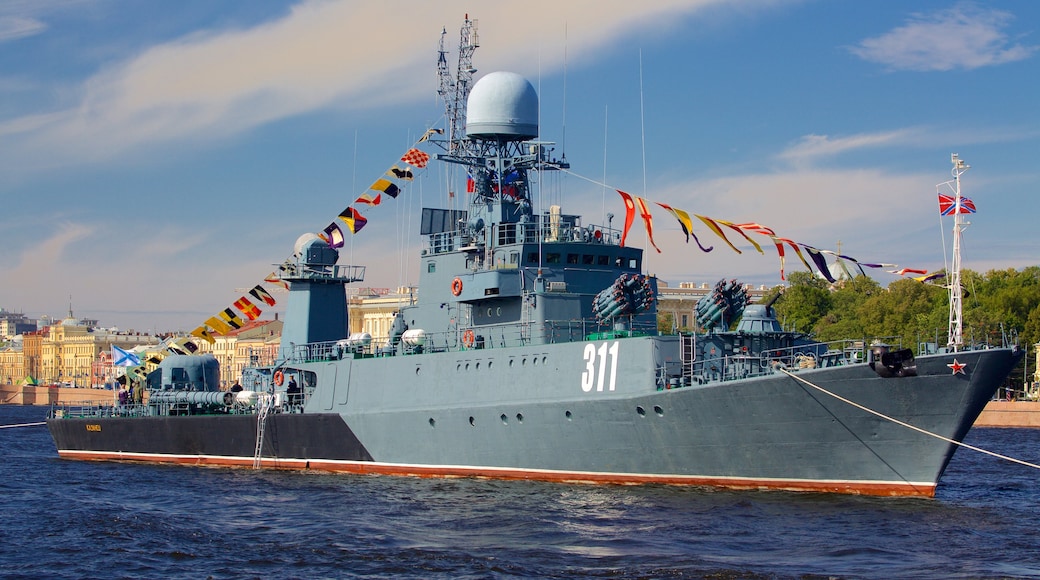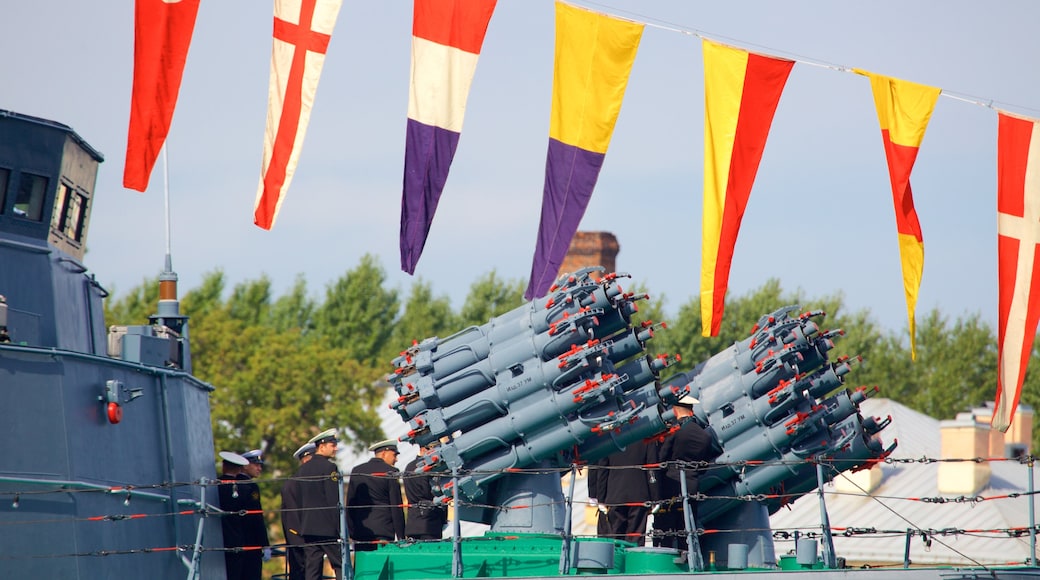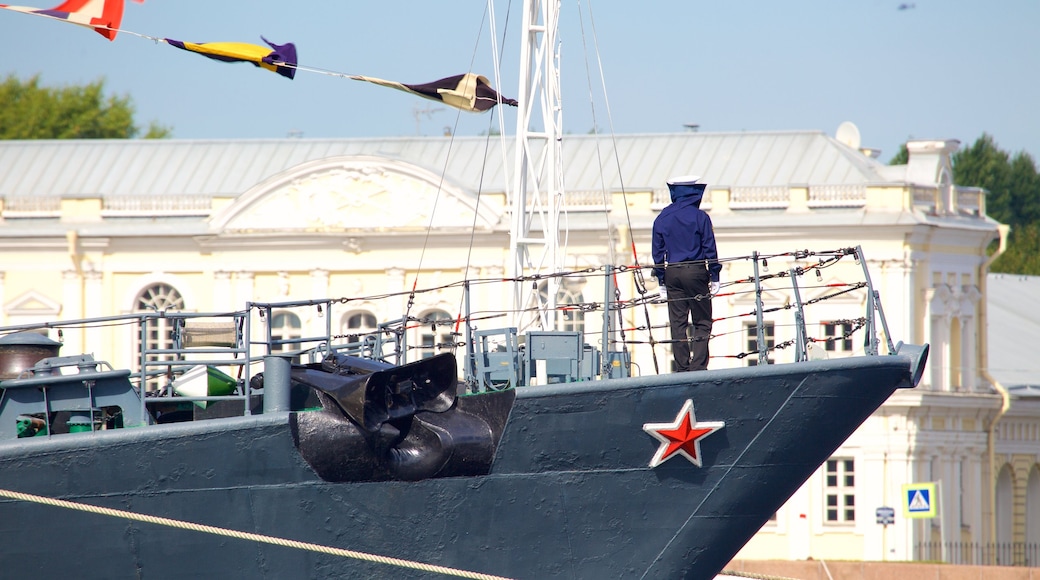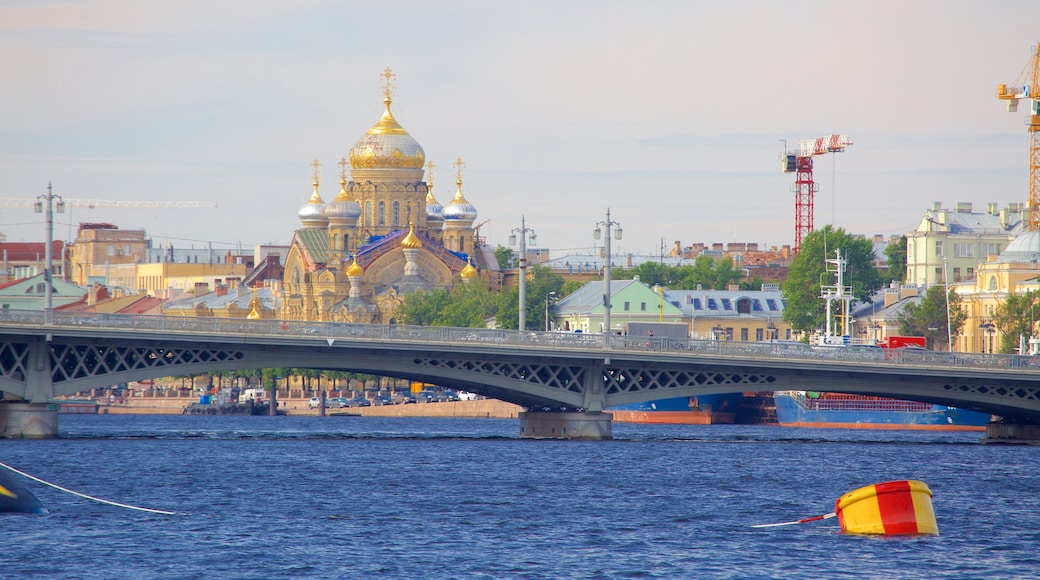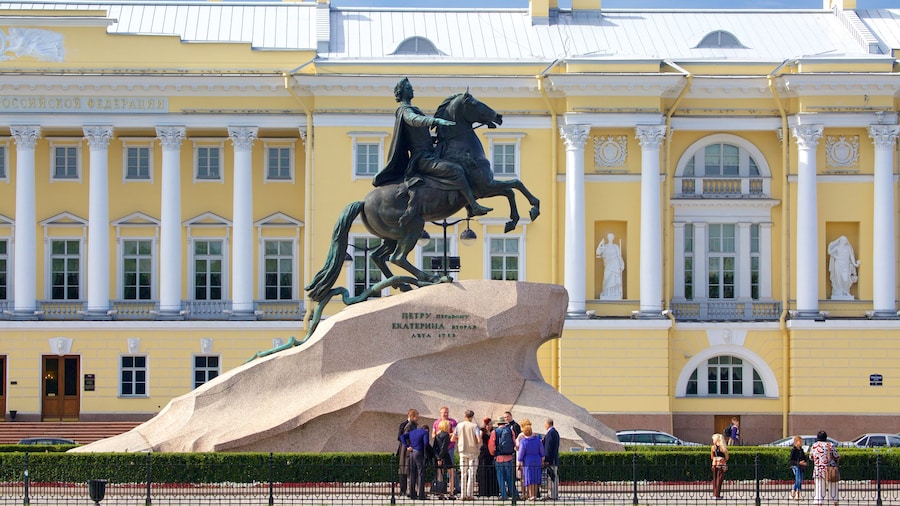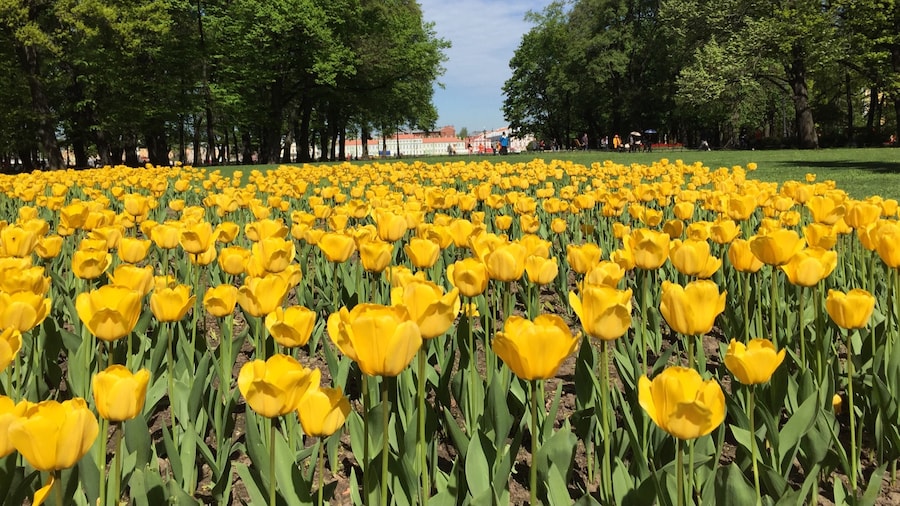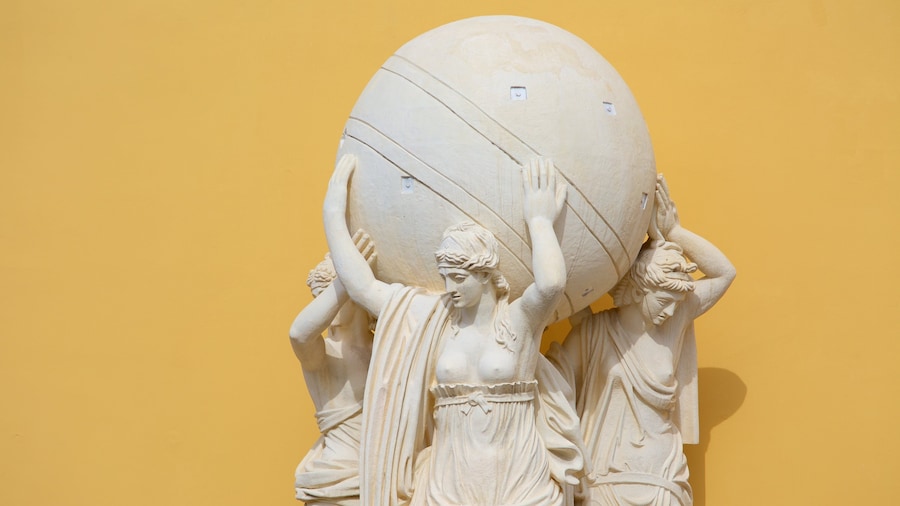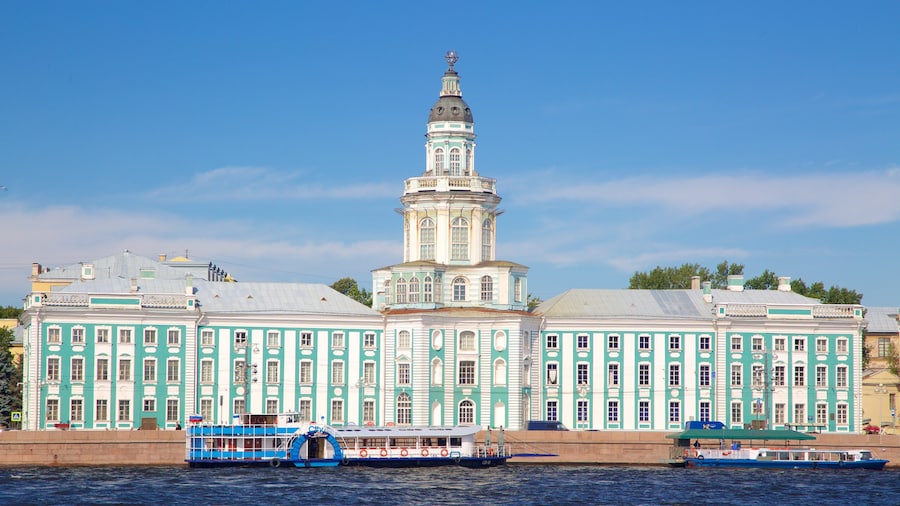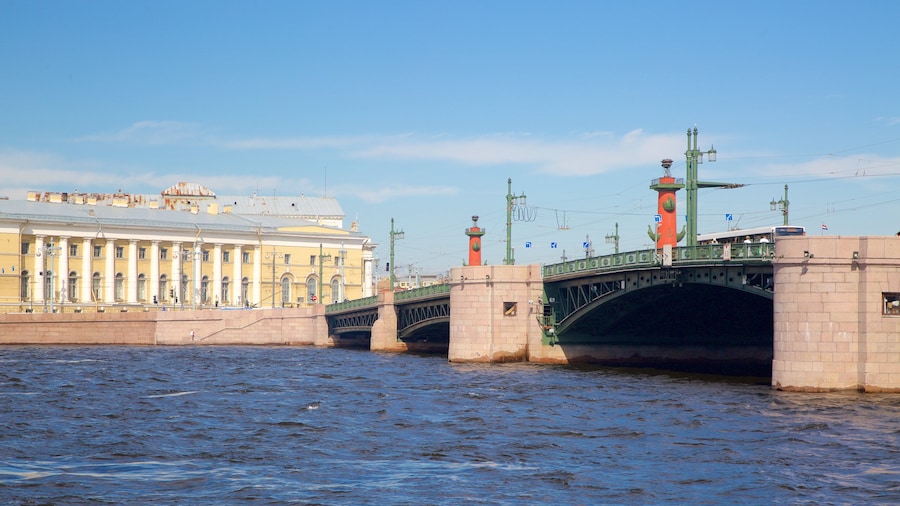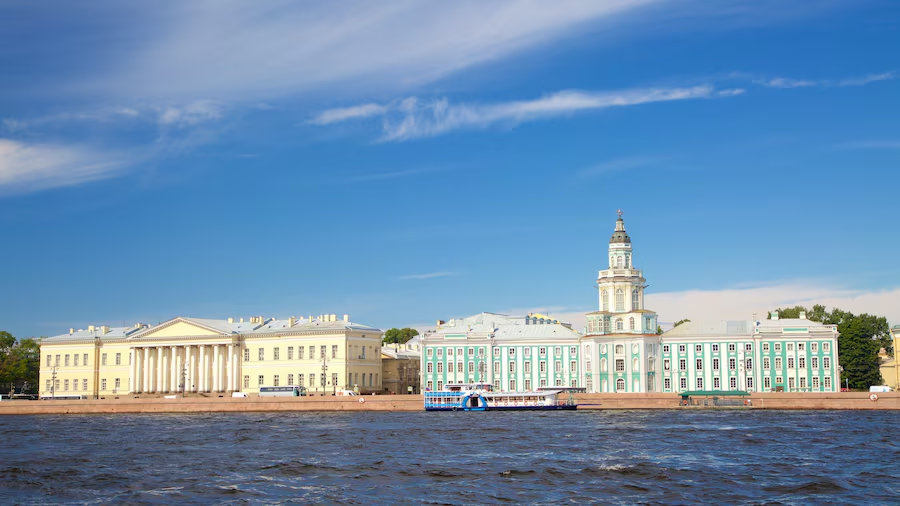Admiralty Embankment is home to several impressive architectural masterpieces and monuments. Join locals strolling along the waterfront boulevard and admire the splendor of the stately buildings.
The embankment takes its name from the Admiralty Board, the governing body of the Navy during the Russian Empire. Signs of this area’s naval heritage are everywhere. Look for the large Admiralty Building located on the embankment. This site was once home to a naval dockyard and now houses naval college. Inspect the top of its spire and you should be able to spot a golden ship weathervane, a well-known symbol of the city.
A short walk away is the Alexander Garden, which runs alongside the Admiralty Building. Stop here for a picnic or to enjoy a break from exploring the city. Be sure to see nearby Senate Square, the site of the suppressed Decembrist Revolt in 1825, which saw a group of 3,000 soldiers rise up against the Russian monarchy.
Don’t miss the Bronze Horseman sculpture, which sits on Senate Square in front of the Admiralty building. Commissioned by Catherine the Great and created by French sculptor Étienne Maurice Falconet, it depicts Russian ruler Peter the Great riding a rearing horse. Like the weathervane atop the Admiralty Building, its image is deeply associated with the city of St. Petersburg.
Note the huge hunk of rock underneath the statue that acts as a pedestal. This is known as the “thunder stone” and weighs about 1,250 tons (1.25 million kilograms). The boulder was sourced from the Gulf of Finland and was transported using innovative engineering methods involving metal tracks, before being carried here by boat.
Stroll the length of the embankment to see more historic sights. At the far end, you’ll reach Palace Bridge, which leads to the Palace Embankment, home to the Hermitage Museum and many imperial palaces. To get to Admiralty Embankment, take the metro to the nearby Nevsky Prospect station.

